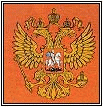
 |
The Time of Troubles Systems |
The character sheet gives a certain amount of information and background on your character. If at any time you have a question about things your character has seen or heard before game start, please ask a GM. (E.g. "Has my character ever seen that person before?" or "Given my character's trade, would s/he know how fast a camel can move?" or "Hey, when my character was a child, and met Her Royal Highness, was I able to see the signet ring? Can I remember it? Did it look like the one that Joe's wearing over there?"). Obviously, don't ask frivolous or trivial questions; but if you think that such background information will be useful/important to figuring out something in game, go for it.
Abilities:
Characters may have cards detailing "abilities" -- things that the character can do that other characters can't. Some may also have "deficits" -- disadvantages which make life more difficult for them. The description of your special rules should be self-explanatory. If not, please ask a GM to help you understand them.
Combat:
If for any reason, a player thinks that her/his character should choose to take violent action, s/he should see a GM immediately. If combat takes place, the attacker(s) and a GM should be in the same room with the would-be victim(s). As soon as the persons playing the attackers announce their attacks, the game master will ask all parties to describe what they are trying to do. The GM will, based upon character abilities, how interesting the descriptions given are, how sensible the actions taken sound, and perhaps some random factors, determine the results of each person's action. Then the GM may ask again for players to describe what their characters are doing.
Other actions:
If you want your character to try to do something that cannot be easily represented by your own actions (perhaps for safety reasons, or because you suspect that your character should have some ability to perform the task that you don't share), feel free to talk to the GMs.
Props:
Some of the game items are represented on cards. However, most items are represented by actual props. The props belong to the Game Masters, or friends of the Game Masters. Give them back at the end of the game.
Money:
What use do starving peasants have for gold and silver? Well, lots. But, since they don't very often actually have any coin, trade is done by barter. You may barter what you have with other people -- you are doing alright if you have a chicken, well off if you have a goat, and you are obscenely wealthy if you have a milk cow.
When one is lucky enough to find employment, ten hours of unskilled labor can usually be traded for six pounds of grain, twelve pounds of hay, two pounds of flour, three pounds of beans, two loaves of bread, four cups of milk, two beets, three parsnips, four onions, six eggs, nine turnips, or fourteen radishes.
One pound of flour can be used to make a small loaf of bread sufficient to feed one healthy person for one day, however this requires labor to prepare as well as access to an oven. A person can also survive on one pound of beans boiled, or half a chicken. The amount of labor a man can perform depends in part on his diet, and how varied it is. Work, hay, grain, beans, cow milk, goat milk, eggs.
Six sacks of grain can sometimes be traded for a chicken. Five chickens can sometimes be traded for a goat. 25 healthy milk goats are considered about as valuable as one milk cow. Even though they are expensive to feed, an untrained dog is considered to be worth about as much as a goat -- the dog can protect against bandits or neighbors.
A healthy chicken eats about one sack of grain in two months. A healthy goat eats about five pounds of hay in a day. A young goat needs about four cups of its mother's milk in order to live. A healthy milk cow eats about fourty pounds of grain in a day. A young cow needs about 32 cups of its mother's milk in order to live. A healthy dog eats about one chicken and a sack of grain in a week. A healthy milk cow produces about 48 cups of milk in one day (the cow's diet affects milk production). A healthy goat produces about five cups of milk in one day (the goat's diet affects milk production).
This game is a Subterranean Homesick Games production.